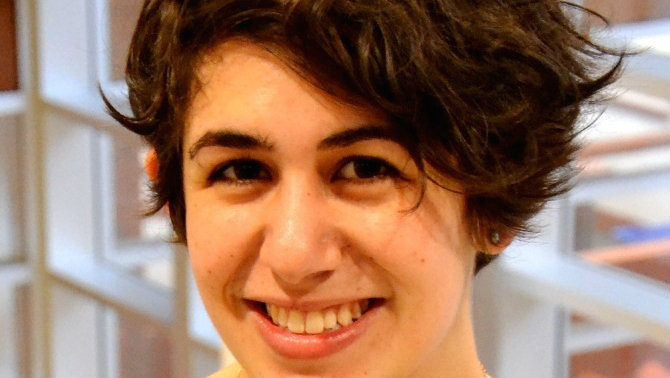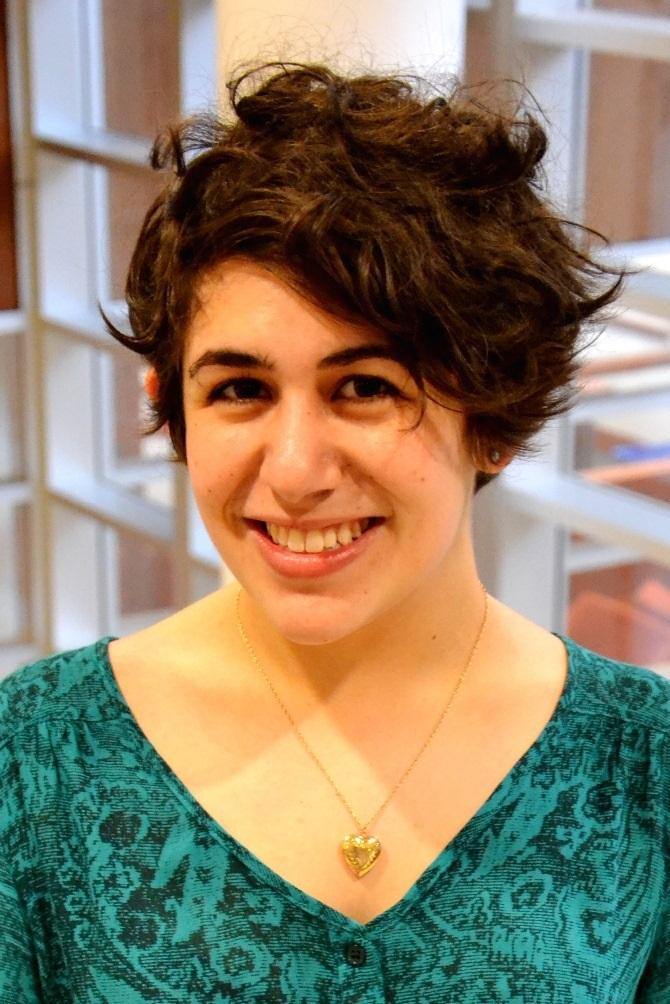

Talya Zax’s early years in a Denver synagogue shaped her faith -- and her fiction.
Zax recently won an international award for her short story “The Garden Hose,’’ a character study of the members of a Jewish congregation who struggle to connect with each other and with their faith as they build a garden for their synagogue.
“The Garden Hose” recently received an honorable mention in the first Amy Levy contest for writers under the age of 30 on Jewish themes. The award is sponsored by the London-based Jewish Quarterly. Zax is now based in New York, where she writes on Jewish culture and issues for the magazine Forward. Zax spoke with Colorado Matters host Ryan Warner.
- How A Childhood Fear Of The Rapture Led To Josiah Hesse's New Book
- Christian Mother And Muslim Daughter Divided, Then United, By Religion
Read an excerpt:
From “The Garden Hose” by Talya Zax The congregation—small, Conservative, housed in a respectable suburb of a mid-size city—will be planting a vegetable garden, a new venture in the spirit of renewal and grace. Their reasons for doing so are varied. Edith, who has suffered her entire life from concerns about her Jewish identity stemming from her distinctly Anglo-Saxon name, sees the prospect of the garden in an exaggeratedly patriotic light. “They will see us as a beacon for generosity,” she says, “and hope. Now, I don’t want to mention—” Everyone present understands that Edith is talking about what the congregation calls “the situation” in public and sighs about in private, meaning the troublesome politics of Israel and Palestine. She is making a fervent appeal for the good judgment and standing of the Jewish people, and, underneath, promoting herself as its most devoted member, the true descendant of those who defended their people at all costs, now defending hers at the cost of blindness. Solomon sees it differently. He enjoys, with a blithe disregard for the operation of seasons, the idea that the parsley at the Seder table will be grown in the same loving sun that falls on the synagogue each and every Saturday, in addition to select other days. Childless, he habitually constructs arguments rooted in the language of parenthood. “It takes a village” is his contribution, the same thought he ascribes to congregation-wide service projects, like the effort by which they collect tzedakah for Jewish schools in environments not traditionally Jewish, as well as the necessary yet undesirable task of clearing up after Kiddush lunch. Rebecca, who proposed and will oversee the garden, has reasons for it that are simpler and more full-hearted. She wants to become a more active participant in her own faith, as well as the life of her Jewish community, and she likes the idea of the young people of the congregation having a project through which they learn to nurture... Part of the congregation’s eagerness to adopt her plan is an eagerness to impress her, the first unconscious manifestation of the older generation’s budding desire to be validated by the younger. In several years’ time, some of the congregants who were at this point middle-aged—Edith and Solomon among them—will remember Rebecca’s initial proposal for this garden as the zenith of their time at the congregation, and wonder at the slow recession of their control, as well as their desire for it, that followed. Come Friday, reviewing the week’s accomplishments before the impending day of rest, the elders demand that Edith and Solomon show them real options for a hose rather than contentedly dismiss them in absentia. On Sunday, rest accomplished, Rebecca and Aaron assemble the wooden frame that will support the garden. Solomon stops by after another expedition to a hardware store with Edith, this time grudgingly successful. He finds the duo crouched over the intersection of two boards, Aaron holding them together and Rebecca hammering them together. “Aaron!” Frustration. “Can you hold them still?” The tip of her tongue wraps gently around her upper lip, the concentrated expression of a child attempting to remember right from wrong. The untapped paternal fondness in Solomon wells up at the image. Her stray hairs. The sunburn beginning to bloom on her uncovered scalp. In the same way he cannot remember interacting with Edith before this project, Solomon thinks he has never fully noticed Rebecca before. The congregation’s children blend together: chubby joints, voices lisping through the foreign Hebrew prayers, awkward-limbed bar-and bat mitzvahs, to whom he always gives a blue-and-white glass mezuzah, teenagers flirting and leading activities for the small ones. All lives to whom he has no attachment, and all lives of whom he realizes -- in this moment, watching the sun’s temperamental movement over Rebecca’s denim back -- he has no understanding. Solomon the Childless, he thinks. Were there a new Torah and our congregation at its center, I would be known in it as Solomon the Childless. Solomon imagines the child she must have been: determined, always questioning. He sees, with admiration, her growth into the person now before him, who so appreciates process and directness. “Like I said earlier. We should have some connection. I feel close to you. Like a child I might have had. You do know, of course, what they say about children—it takes a village.” And so Rebecca sees it, the lack of understanding that Solomon has mistaken for care. Again a glimpse of the quiet and persistent struggle for connection, this time impossible to look away from, this time overwhelming. “I’m sorry,” she says. “I should go.” ….. In the late summer, once Rebecca’s garden has awaited her return, vainly, for too many months, once even Solomon has ceased to imagine that return to be imminent, the congregation silently tallies its gains. One beautifully installed hose, one unfinished wooden framework built to contain vegetables, and the new alliance of Edith and Solomon, ever intensifying, which some congregants feel borders on the inappropriate. Losses are felt more palpably, but not expressed. The addition of Aaron, whose anxious silence is a constant irritant, belongs in no one’s mind to either category. Edith, ever hopeful, sees the garden’s emptiness as opportunity. She speaks to Solomon of Moses in the desert, plagued with the thirst of a people with no water in sight. So here they find the reverse unhappiness: ready water with only a shadow to nurture. So what. If Moses found water in a desert there is no reason she, he, and the others should not find a way for this garden to go on. She explains, incorrectly, there is no gain without sacrifice, that the fact of a future is a constant. It is only the the path to get there that can alter, that cannot, in advance, be known. |








